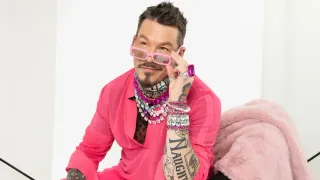October 19, 2017
Pirates Of The Caribbean: Dead Men Tell No Tales
JC Alvarez READ TIME: 2 MIN.
High adventure once again takes to the seas! If you've ever had doubts that a theme park ride couldn't be made into a successful film franchise, you don't have to look any further than to Disney's "Pirates of the Caribbean". The first of the series was released in 2003 and starred Johnny Depp who must be credited with manufacturing the indelible antics of the series' centrifugal character, the pirate captain Jack Sparrow.
Since then, the franchise produced by action film provocateur Jerry Bruckheimer has expanded to include four full-length installments that have reignited the high-spirited imaginations of hidden treasures at world's ends and terrifying curses on turbulent seas. In the latest chapter of Jack Sparrow's continuing adventures "Pirates of the Caribbean - Dead Men Tell No Tales" available on Blu-ray, DVD and Digital HD the thrills are more epic, the fun is spectacular!
Like the theme park ride that inspired it, "Pirates" is off-and-running like a runaway rollercoaster as Jack, back to his old tricks, embarks of stealing the riches of a bank safe, and instead goes for the entire Bank of St. Martin itself! The caper lands Jack in prison where he is discovered by the now grown-up son of his further shipmate Will Turner (Orlando Bloom). Young Henry (played by Brenton Thwaites) is desperate to rescue his father from the curse of the Flying Dutchman.
Henry has a mysterious message for Jack, a threat really from one of Jack's ocean-born adversaries, the undead Capt. Salazar (new to the franchise Javier Bardem) whom Jack tricked into marooning his ship at the Devil's Triangle! The now cursed captain and his crew are coming for Jack to exact their revenge, but first Henry must enlist Sparrow and convince the beautifully talented astronomer Carina Smyth (Kaya Scodelario) to take them to the Trident of Poseidon.
The legend of the trident piques many interests including those of Salazar and Sparrow's sometime nemesis Capt. Hector Barbossa (Geoffrey Rush) who venture on the high seas to locate the hidden treasure, wield the power of the trident, and free Will Turner from his curse. Not since the days of Errol Flynn have pirate adventures been so thrilling, and "Pirates" having toned down a bit of the ghoulish horrors of its previous installments is a family-friendly journey everyone will enjoy.
The Blu-ray is packed with bonus features including an extended behind-the-scenes look at the making of the new movie, being touted as (perhaps) the "final" journey for Jack Sparrow and the Pirates of the Caribbean. The nearly one-hour long documentary takes the audience onto the sets and the expansive locations that reunite the crew. Specially added Deleted Scenes bring to life more of the film's epic feel, while the bloopers bring the humor back to dry land!
"Disney's Pirates of the Caribbean - Dead Men Tell No Tales"
available now on Blu-ray, DVD and Digital HD
$22.99
movies.disney.com






